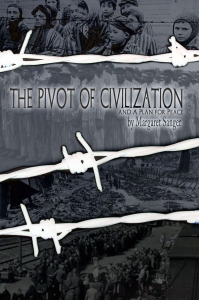From The Relation of Philanthropy and Medicine to Race Betterment by Leon J. Cole, University of Wisconsin, at the First Conference for Race Betterment (1914) Among those who have in their treatment of this subject emphasized the importance of the natural selection viewpoint may be mentioned especially Herbert Spencer, Francis Galton, and Karl Pearson, the …
Category: feebleminded
George William Hunter’s “Civic Biology” — the Eugenics Textbook at the Heart of the ‘Scopes Monkey Trial’
The so-called ‘Scopes Monkey Trial’ was a media sensation at the time, but how it actually went down was shamelessly skewed afterwards to make it seem that the evolutionists were humble seekers of truth and those who stood against them ignorant, religious bigots. This viewpoint was perpetuated effectively through movies on the trial such as …
The Eugenic Roots of Genetic Counseling
Charity requires us to believe that most contemporary genetic counselors are not at all motivated by considerations that we would term ‘eugenic.’ However, the founders of the field left no doubt about their motivations, stating them plainly and explicitly, and characterizing them as definitely constituting eugenics. The following material raises more than reasonable doubt that …
“The Eugenic Value of Birth Control Propaganda” by Margaret Sanger
Copied from [Source] Margaret Sanger, “The Eugenic Value of Birth Control Propaganda,” Oct 1921. Published Article. Source: The Birth Control Review, Oct. 1921, 5 , Margaret Sanger MicrofilmS70:913 . For related documents, see Chapter VIII of “The Pivot of Civilization,” 1922. An editorial introduction mentions the timeliness of this article in light of the recently …
Are imbeciles, the feeble-minded, criminals, humans? This Eugenicist says NO
One of the clear implications of the eugenicist mindset was that there were certain humans who were not really humans. It was not common to hear this directly put, although in many cases they come very close. It is important to realize that they did not think they were being prejudicial, but rather, scientific. After …
American and British Eugenicists Agree: Life Unworthy of Life
The phrase ‘life unworthy of life‘ is known particularly because of the fact that the Nazis used it when eliminating ‘defectives’ in their Action T4 project (and later, in reference to the Jews), but American and British Eugenicists also were known in terms of ‘lives unworthy of life.’ Quotes are provided below. ————- Herbert Spencer, …
Mass Extermination and ‘Lethal Chambers’ Widely Considered by Eugenicists in America, England, and Germay
Long before the Nazis implemented the ‘Final Solution,’ American and English eugenicists had talked often of the use of ‘lethal chambers’ to deal with the pressing problem of the ‘unfit.’ You can imagine Hitler’s surprise, when, after acting on precisely what elites in America and England had long been advocating for, he was perceived as …
The Roots of the Concentration Camp Were American and British Eugenicists, Not Nazis
For what its worth, the very idea of the ‘concentration camp’ was as much American and British, if not more, as it was Nazi Germany. These ‘segregation’ camps were seen as humane and hygienic ways to prevent the breeding of ‘defective stock.’ Quotes from Eugenicists discussing such camps are provided below. No attempt is made …
Eugenics and Evolution are Incompatible with Charity and Altruism
One of the common themes of eugenic writers is that if Darwinism and evolution were properly understood, charity and altruism could very well inflict a great harm on a population, and indeed, threatening to do just that. This post will catalog quotes of eugenicists making that argument. ——— From Madison Grant in The Passing of …
Christianity and Eugenics Diametrically Opposed
One of the common themes that surfaces in the writings of eugenicists is how Christianity is the antithesis of the eugenics mindset. Catholics in particular are often singled out. No person educated in evolution and Darwinism could possibly stand opposed to eugenics–or remain a Christian. At the very least, tenets of religious faith that stress …


Recent Comments